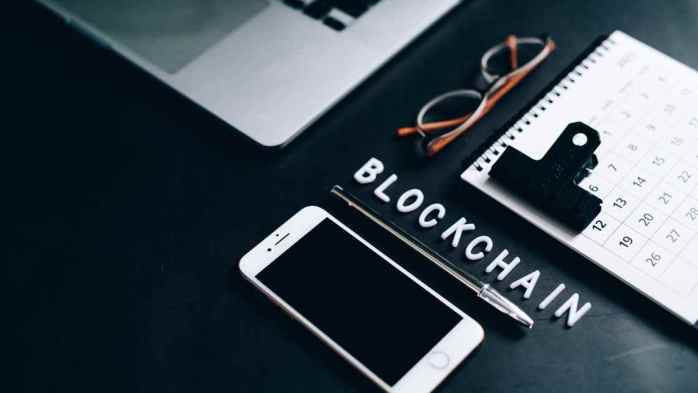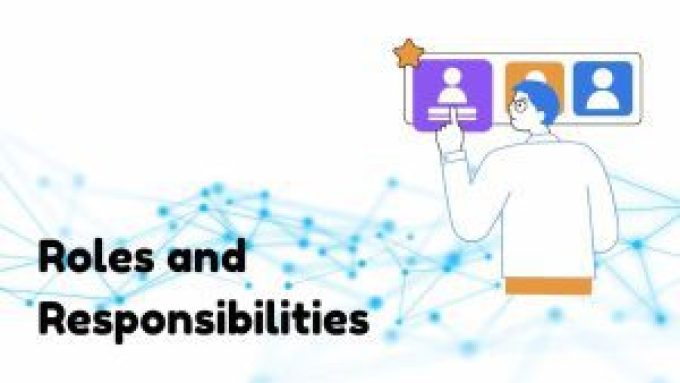As the world becomes increasingly digitized, blockchain technology has emerged as a key player in the tech industry.
Every system now tries to incorporate digitization. Cryptocurrencies, smart contracts, and the blockchain has completely changed the way we think about data management and security.

And as more companies adopt blockchain technology, the demand for skilled blockchain engineers is only increasing.
So, if you’re interested in pursuing a career as a blockchain engineer, you’ve come to the right place.
In this guide, we’ll cover everything you need to know to become a successful blockchain engineer, including:
What is blockchain technology, why the blockchain technology is important, and how you can get started on your journey to becoming a blockchain engineer?
What is Blockchain technology?
Blockchain is a decentralized digital ledger technology that records transactions securely and immutably. It uses cryptography to ensure that data stored on the blockchain cannot be altered or manipulated.
The importance of blockchain lies in its ability to provide trust and transparency in transactions without the need for intermediaries.

A blockchain engineer plays a crucial role in developing, testing, and implementing blockchain-based applications and solutions. They are responsible for designing and managing blockchain networks and nodes, writing smart contracts, and ensuring the security and scalability of the blockchain infrastructure.
Becoming a blockchain engineer can be a highly lucrative career choice due to the increasing demand for blockchain technology in various industries, including finance, healthcare, supply chain management, and more.
The salary range for blockchain engineers can vary depending on factors such as experience, skill level, and location, but it is generally considered to be higher than average in the tech industry.
Roles and Responsibilities of a Blockchain Engineer
The roles and responsibilities of a blockchain engineer vary according to various industries. Some of them are:

Researching High-Quality Material
Blockchain engineers must know that it is their duty to come up with high-quality material that is important for major projects.
If they fail to deliver quality work, it can have serious consequences for the project’s success and reputation, and may even result in financial losses for those involved.
Therefore, it is essential for blockchain engineers to be very active always striving to improve their skills to make sure that they are providing the best possible service to their clients or employers.
Designing and Developing Applications
In some companies, although the main work of designing applications is left to a blockchain developer, some blockchain engineers also assist with the coding of applications.
These kinds of situations…
These days, all blockchain engineers have a forefront knowledge of the tools used for development. Such as Sokidity or Truffle.
Testing and Troubleshooting
If a private blockchain fails or has bugs, it can cause serious issues for the organization using it.
That’s why testing and troubleshooting are essential for blockchain engineers. During this period of time, they must ensure that the blockchain is working as intended and that any potential issues are identified and resolved before they can cause problems.
Back-End and Front-End Maintenance
These kinds of maintenance are very important although they are not one of the major responsibilities of a blockchain engineer
Back End is associated with maintaining the infrastructure like the nodes, miners, and other components that make up the blockchain in question.
While front end involves maintaining the user interface and user experience (UI/UX) of the blockchain application, including web and mobile applications to guarantee a seamless operation throughout the system.
Evaluating Blockchain Applications
In addition to designing and developing blockchain applications, a Blockchain Engineer must also evaluate the effectiveness and efficiency of existing blockchain applications. You’ll need to analyze the system’s performance, identify areas of improvement, and propose solutions to enhance its functionality.
Preparing Documentation and Leading the Team
As a Blockchain Engineer, you must be able to prepare documentation for every project and lead the team to create better solutions for existing blockchain technology. Effective communication skills are crucial to conveying complex technical concepts to the team and stakeholders.
Creating Blockchain-based Systems
Finally, a Blockchain Engineer must have the ability to create an application or system using blockchain technology as a solution to the organization’s needs. This requires a deep understanding of the company’s operations and goals and the ability to design a system that meets those needs.
Why is Blockchain Technology Important?
Blockchain technology has the potential to revolutionize many industries, from finance to healthcare to supply chain management. Some of the key benefits of blockchain technology include:
- Improved security: Because of its decentralized nature, blockchain technology is much more secure than traditional centralized systems. Transactions on a blockchain are verified and recorded using complex cryptographic algorithms, making it virtually impossible to hack or manipulate the data.
- Increased transparency: Blockchain technology provides a transparent and immutable record of all transactions, which can help to prevent fraud and corruption.
- Faster and more efficient transactions: Because blockchain transactions are processed in a decentralized manner, they can be completed much faster and with lower transaction fees than traditional payment methods.
Skills Needed to Become a Blockchain Engineer

- To become a successful blockchain engineer, you’ll need to have a strong foundation in computer science and programming. Some of the key skills you’ll need to master include:
- Knowledge of blockchain technology and its underlying principles, including cryptography, consensus mechanisms, and smart contracts.
- Understanding of programming languages commonly used in blockchain development, such as Solidity, JavaScript, Python, or Go.
- Understanding of distributed systems and networking protocols.
- Experience with blockchain frameworks such as Ethereum.
- Familiarity with software development tools and methodologies, including version control systems, agile development, and continuous integration/continuous delivery (CI/CD).
- Strong problem-solving and analytical skills, with the ability to quickly identify and resolve issues in a little amount of time.
- Attention to detail and a commitment to delivering high-quality work.
- Knowledge of cybersecurity best practices, including encryption, access control, and secure coding.
- A willingness to continually learn and adapt to new technologies and trends in the rapidly evolving blockchain industry.
See also: How to Become a Web3 Developer: A Comprehensive Guide
What Job Opportunities Are Available for Blockchain Engineers?

There are lots of open jobs for blockchain engineers available on different job boards. You can find some of the related tech job posting here on our own Job Board.
Some of the blockchain engineer jobs available in 2023 are:
Blockchain Developer: A blockchain developer is responsible for designing and developing decentralized applications (dApps) on a blockchain network. They must have a strong foundation in programming and a solid understanding of blockchain technology.
Blockchain Architect: A blockchain architect is responsible for designing and implementing the overall architecture of a blockchain network. They must have a deep understanding of the various components of a blockchain network and how they interact with each other.
Smart Contract Developer: A smart contract developer is responsible for writing and testing smart contracts on a blockchain network. They must have a strong understanding of programming languages such as Solidity and be able to write secure and efficient code.
Blockchain Consultant: A blockchain consultant provides expert advice on the use and implementation of blockchain technology. They must have a deep understanding of the potential applications of blockchain technology in various industries.
Blockchain Product Manager: A blockchain product manager is responsible for managing the development and launch of blockchain-based products. They must have a solid understanding of both blockchain technology and product management.
Discover more from Dipprofit
Subscribe to get the latest posts sent to your email.



